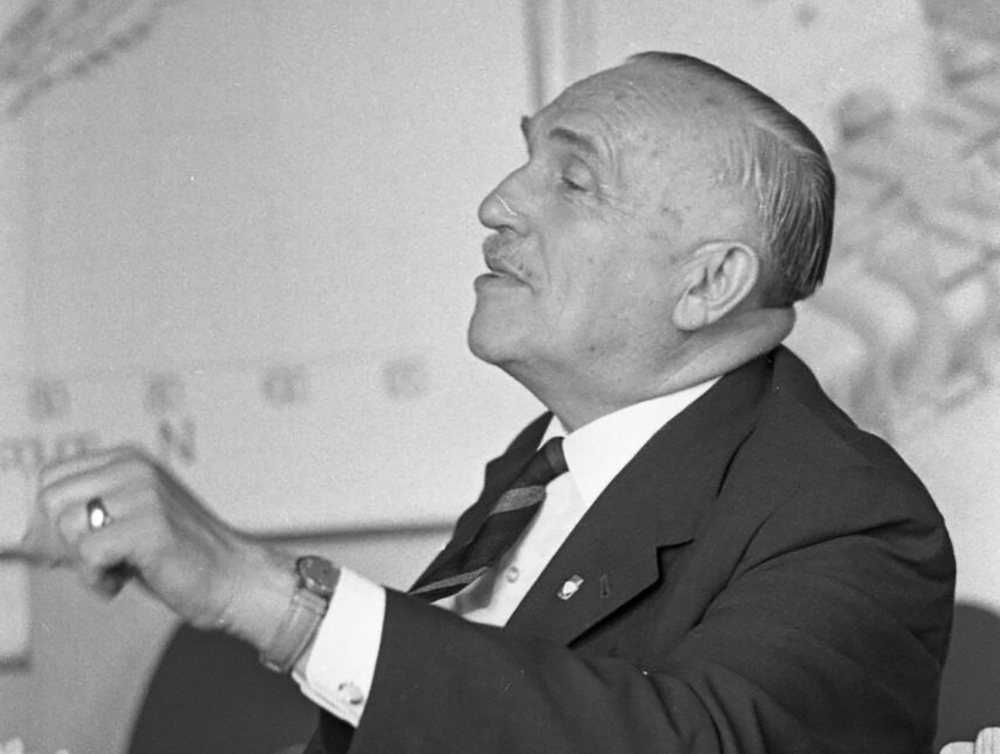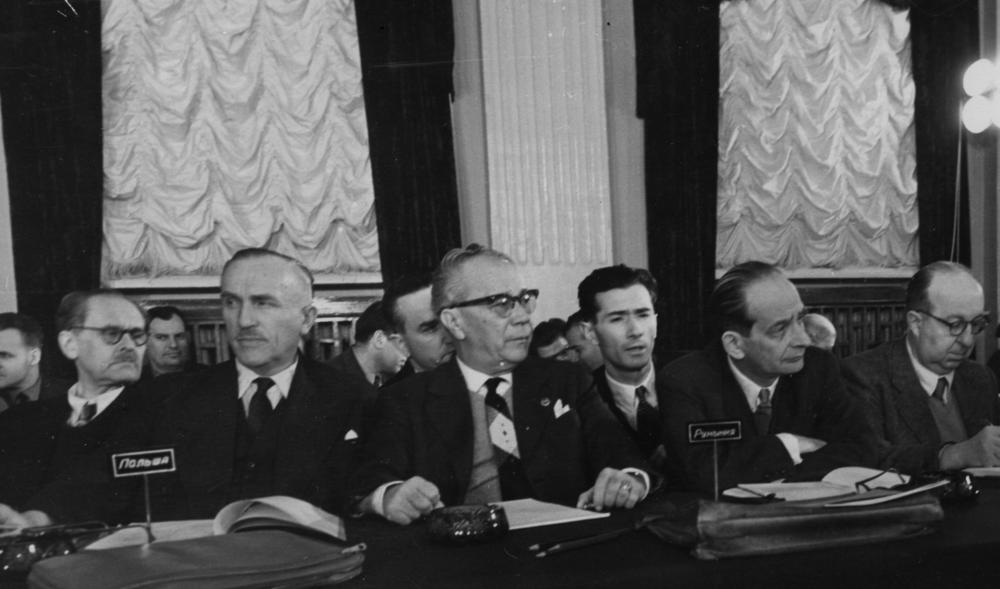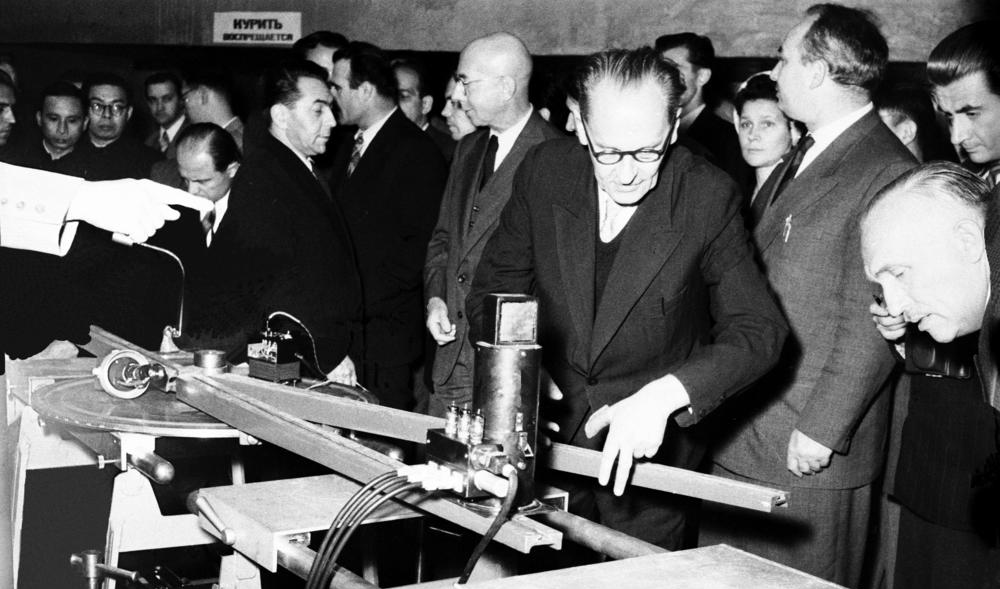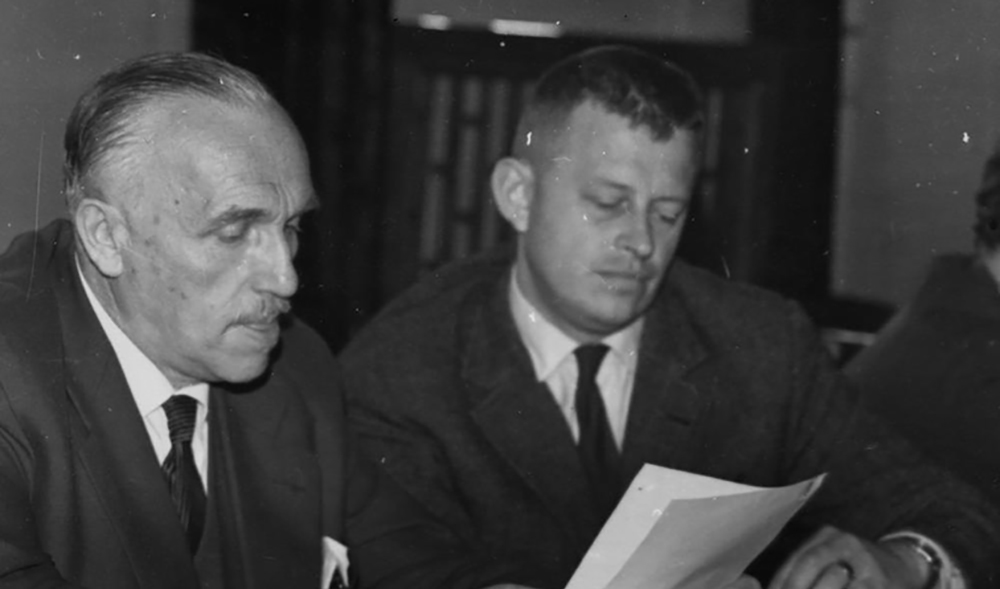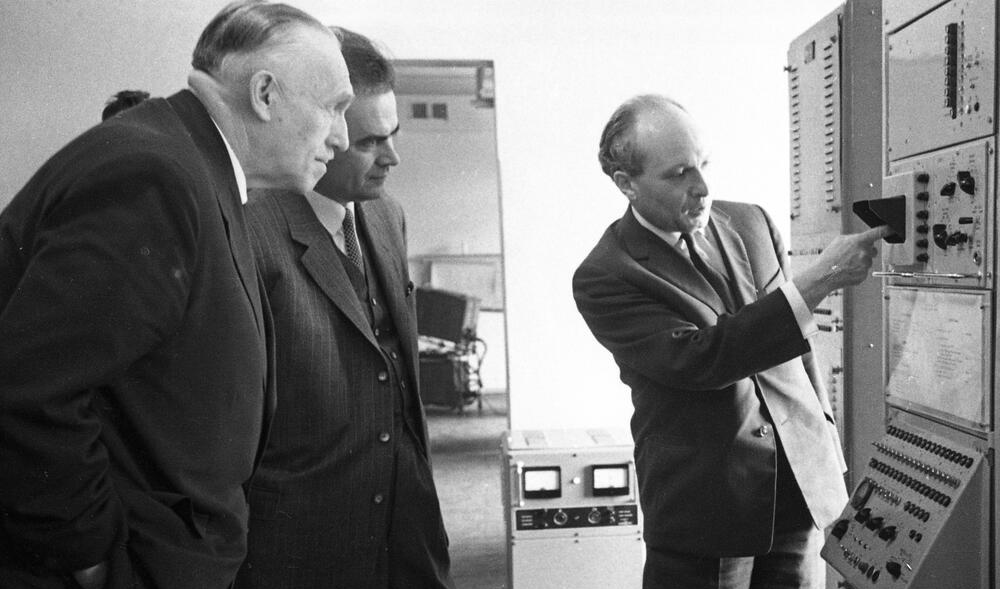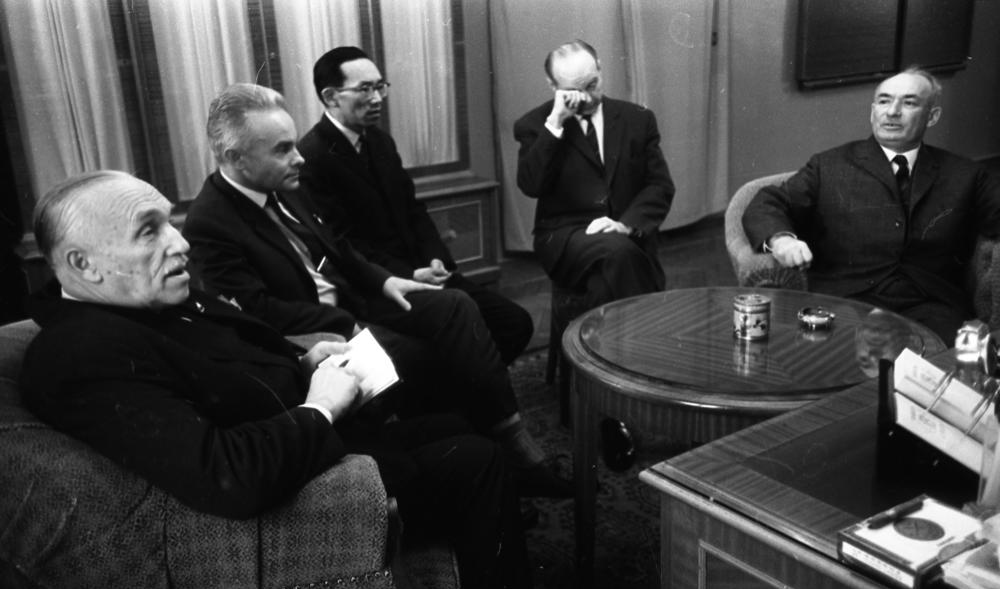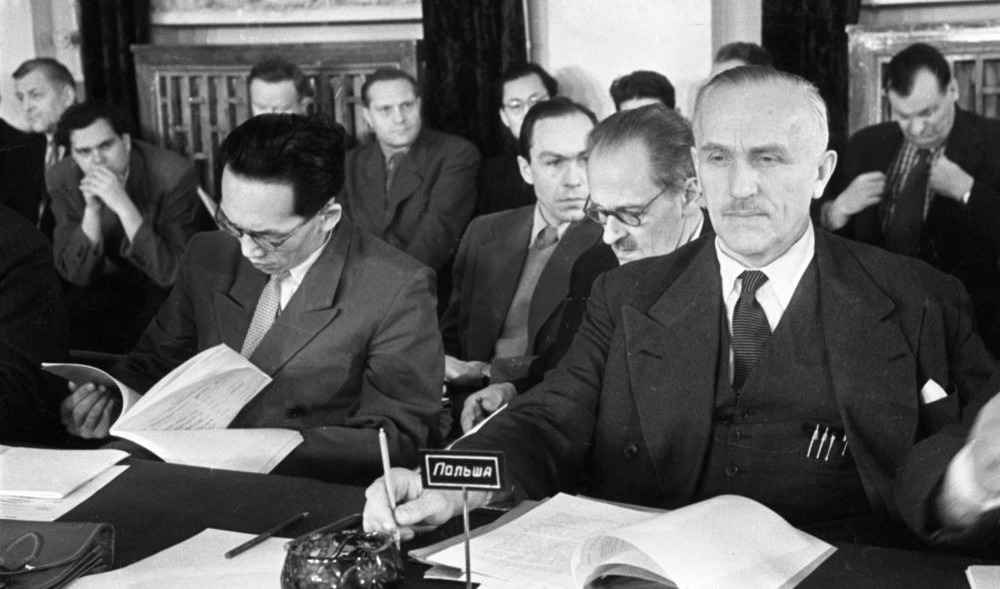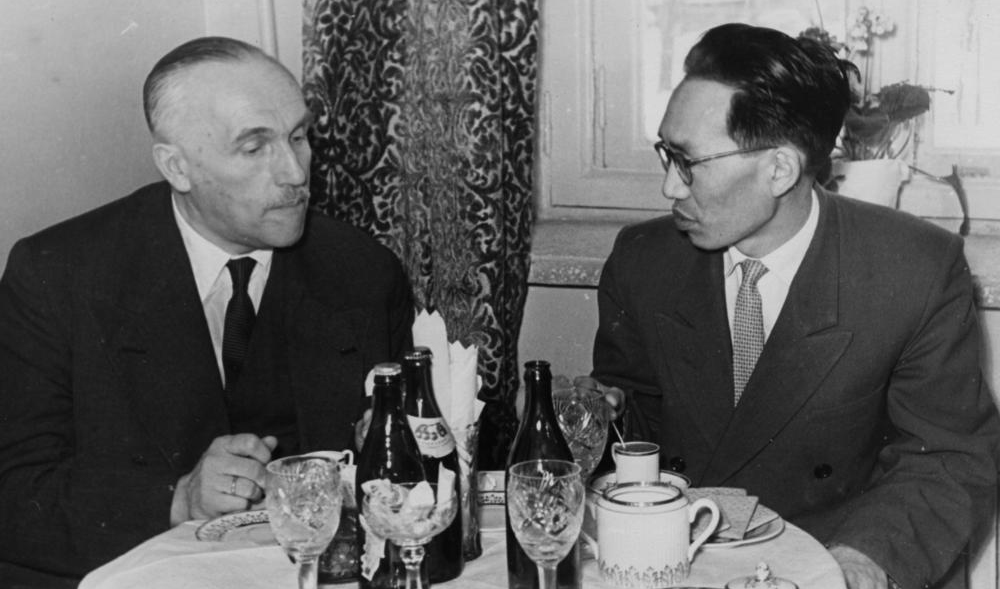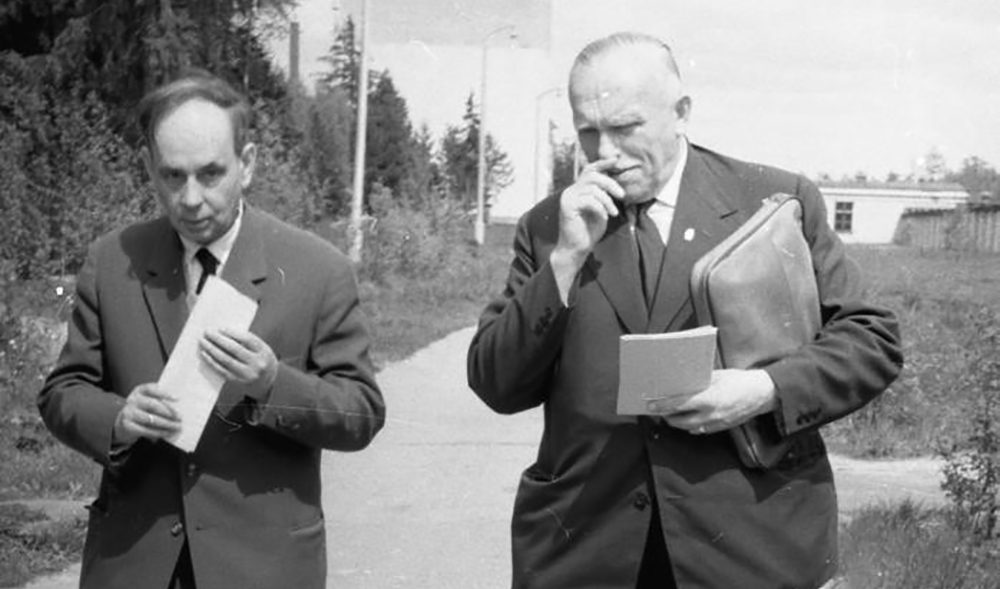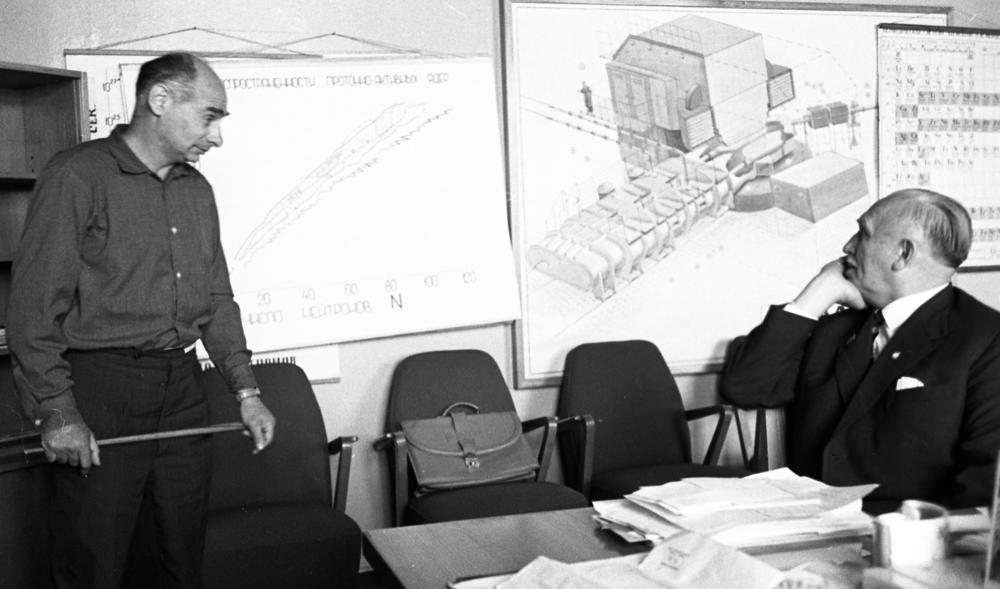Founding Fathers: Henryk Niewodniczański
News, 10 December 2022
On 10 December, the Joint Institute for Nuclear Research celebrates the birthday of one of its founding fathers – the renowned experimental physicist of the Polish AS Henryk Niewodniczański (1900–1968). He was member of the JINR Scientific Council in 1956 – 1968. At his suggestion, the Department of Nuclear Spectroscopy and Radiochemistry was established at the Laboratory of Nuclear Problems JINR.
The key scientific works of Academician Niewodniczański are devoted to nuclear physics of low energies and nuclear spectroscopy. He wrote a number of fundamental works on atomic and nuclear physics.
In 1924, H. Niewodniczański graduated from Stefan Batory University in Wilno (Poland) and two years later received his PhD from the same university. In 1927–1928, he was a scholar at the University of Tübingen, Germany. At that time, he was mainly interested in the optics of metals and molecular optics.
In 1934, as a fellow of the Rockefeller Foundation, Niewodniczański performed studies at the Royal Society Mond Laboratory and the Cavendish Laboratory in Cambridge, as one of E. Rutherford’s students. There he took part in the world’s first cold neutron experiments and acquired a strong interest in atomic and nuclear physics. In 1934, Niewodniczański discovered the phenomenon of magnetic dipole transition while studying the effect of the magnetic field on the fluorescence of mercury vapour. In 1937, Niewodniczański was appointed Director of the Institute of Experimental Physics at Adam Mickiewicz University in Poznań and later became Professor of the Department of Experimental Physics at Stefan Batory University. In 1945, he started work at the Department of Experimental Physics at the Jagiellonian University (Krakow).
Professor Niewodniczański initiated most of the research performed under his supervision at the scientific centres where he worked. In 1945–1968, he was Director of the Institute of Physics at the Jagiellonian University. In 1950s, Henryk Niewodniczański was able to justify the acquisition of the Soviet made cyclotron U-120. In 1952, he founded the Centre of Nuclear Physics PAN. In 1955 it was transformed into the Institute of Nuclear Physics in Krakow. The basic facility of this Institute was the Soviet-made U-120 cyclotron. Until 1968, Niewodniczański was the Director of the Institute. In 1988, the Institute of Nuclear Physics of the Polish Academy of Sciences was named after him.
He received the affectionate nickname “Father” from his students. “Thanks to his extensive knowledge, great charm as well as rich sense of humour, everyone who had the honour to know him loved him,” says the website of the Henryk Niewodniczański Institute of Nuclear Physics PAN.
The scientist was a laureate of the Polish Council of State Award for his achievements in the usage of nuclear energy (1962).
In Krakow there is Henryk Niewodniczański Street, at the site of DLNP JINR there is an alley named after him along the synchrocyclotron building. A prize for young scientists named after Henryk Niewodniczański is awarded at IFJ PAN.
